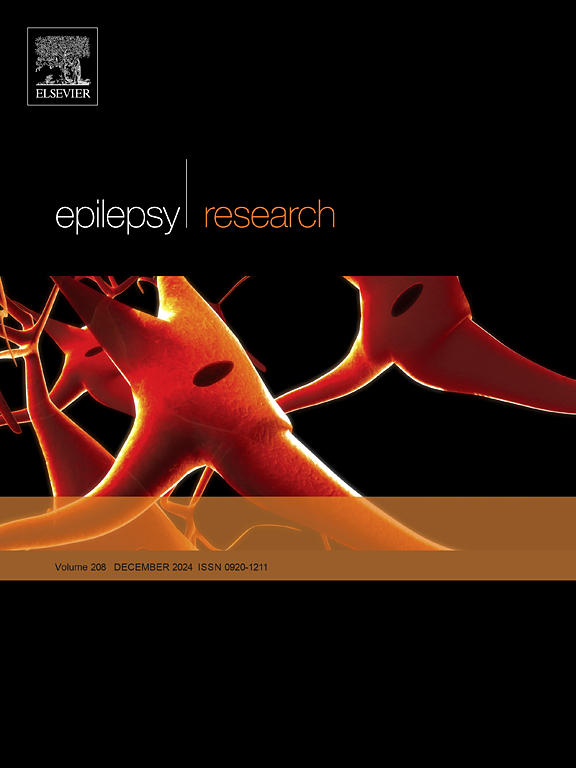对九个撒哈拉以南非洲国家的医护专业人员进行了一项基于宣传的横断面研究,探讨影响坚持用药的因素
IF 2
4区 医学
Q3 CLINICAL NEUROLOGY
引用次数: 0
摘要
背景撒哈拉以南非洲地区的癫痫患者对抗癫痫药物(ASM)的依从性仍然很低。导致依从性低的因素尚不十分明确。为了提高依从性,了解为这一人群提供癫痫护理的医疗保健专业人员的看法和观点非常重要。本研究使用了一份简短的在线问卷,要求在撒哈拉以南非洲国家工作的医护专业人员(包括护理和医疗专业人员)对一组预先确定的选项进行评分,这些选项是根据目标国家当地癫痫专家焦点小组的反馈意见设计的。问卷由六个问题组成,混合了多项选择题和李克特量表题。从医护专业人员的角度来看,认为影响坚持用药的最重要因素是:缺乏治疗癫痫的药物(71%)、药物的可负担性(60%)、患者、家属、护理人员对药物缺乏了解(43%)、文化上对癫痫的误解(40%)和药物的副作用(32%)。参与调查的有许多不同的医疗保健专业人员;65 名参与者是医生,152 名参与者是其他医疗保健专业人员,如护士(59%)和药剂师(10%)。本文章由计算机程序翻译,如有差异,请以英文原文为准。
An advocacy based cross sectional study of healthcare professionals of factors impacting on medication adherence across nine Sub-Saharan African countries
Background
Adherence to anti-seizure medication (ASM) by people diagnosed with epilepsy in sub-Saharan Africa remains low. The factors for low adherence are not well understood. To improve adherence, it is important to understand the perceptions and views of healthcare professionals delivering epilepsy care to this population. The aim was to investigate the factors influencing ASM adherence.
Methods
This study uses a brief online questionnaire which asked healthcare professionals (both from nursing and medical backgrounds) who work in sub-Saharan African countries to rate a set of pre-established options designed with the feedback of a local focus group of epilepsy experts from countries targeted. The questionnaire consisted of six questions and was a mix of multiple choice and Likert scale questions.
Results
There were 217 healthcare professionals who replied to the questionnaire. The most important factors believed to be influencing adherence from a healthcare professional perspective are; lack of availability of medication for epilepsy (71 %), affordability of medication (60 %), the patient, family, carer lacking in understanding of medication (43 %), cultural misconceptions about epilepsy (40 %) and side effects of the medication (32 %). The survey was answered by many different healthcare professionals; 65 participants were doctors and 152 were other healthcare professionals such as nurses (59 %) pharmacists (10 %) and when comparing them, the three most important categories were consistent across groups.
Conclusion
Healthcare workers in Sub-Saharan Africa identify that the primary factors impacting adherence to ASMs, in their view, is affordability and availability of ASMs.Addressing this issue may reduce the treatment gap.
求助全文
通过发布文献求助,成功后即可免费获取论文全文。
去求助
来源期刊

Epilepsy Research
医学-临床神经学
CiteScore
0.10
自引率
4.50%
发文量
143
审稿时长
62 days
期刊介绍:
Epilepsy Research provides for publication of high quality articles in both basic and clinical epilepsy research, with a special emphasis on translational research that ultimately relates to epilepsy as a human condition. The journal is intended to provide a forum for reporting the best and most rigorous epilepsy research from all disciplines ranging from biophysics and molecular biology to epidemiological and psychosocial research. As such the journal will publish original papers relevant to epilepsy from any scientific discipline and also studies of a multidisciplinary nature. Clinical and experimental research papers adopting fresh conceptual approaches to the study of epilepsy and its treatment are encouraged. The overriding criteria for publication are novelty, significant clinical or experimental relevance, and interest to a multidisciplinary audience in the broad arena of epilepsy. Review articles focused on any topic of epilepsy research will also be considered, but only if they present an exceptionally clear synthesis of current knowledge and future directions of a research area, based on a critical assessment of the available data or on hypotheses that are likely to stimulate more critical thinking and further advances in an area of epilepsy research.
 求助内容:
求助内容: 应助结果提醒方式:
应助结果提醒方式:


